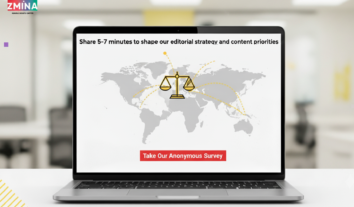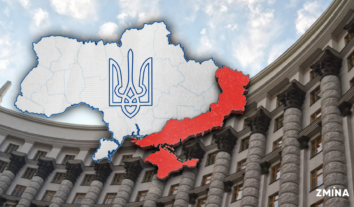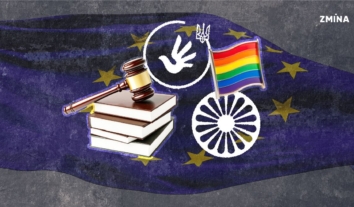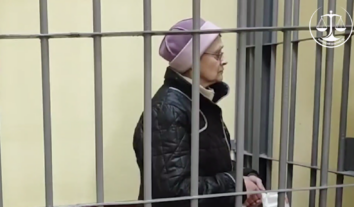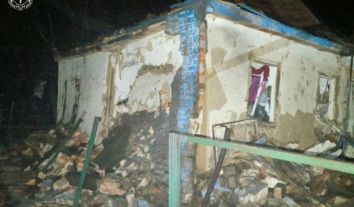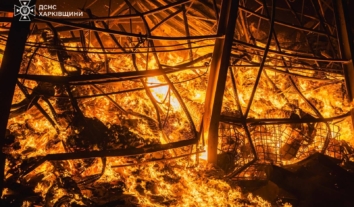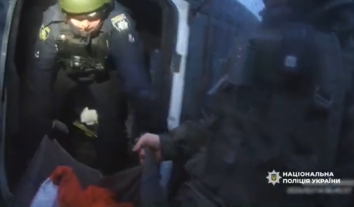Human rights defender Maksym Butkevych celebrates his third birthday in Russian captivity
On July 16, 2024, Ukrainian human rights defender and member of the Armed Forces of Ukraine Maksym Butkevych turned 47. He was celebrating his third birthday in a Russian prison because of a trumped-up criminal case in which a court in occupied Luhansk sentenced him to 13 years in prison. The human rights defender was accused of firing a grenade launcher at a high-rise building in Sievierodonetsk, Luhansk region, and injuring two civilians.
The Russian Supreme Court upheld the verdict. The Russian judges refused to include in the case file evidence that Butkevych was not at the scene of the alleged crime at all. The judges also did not take into account the statement of lawyers that he incriminated himself through promises of a quick exchange and threats of torture.
ZMINA published the full text of his speech during the cassation hearing of his case by the Russian court, which was recorded by one of the visitors.
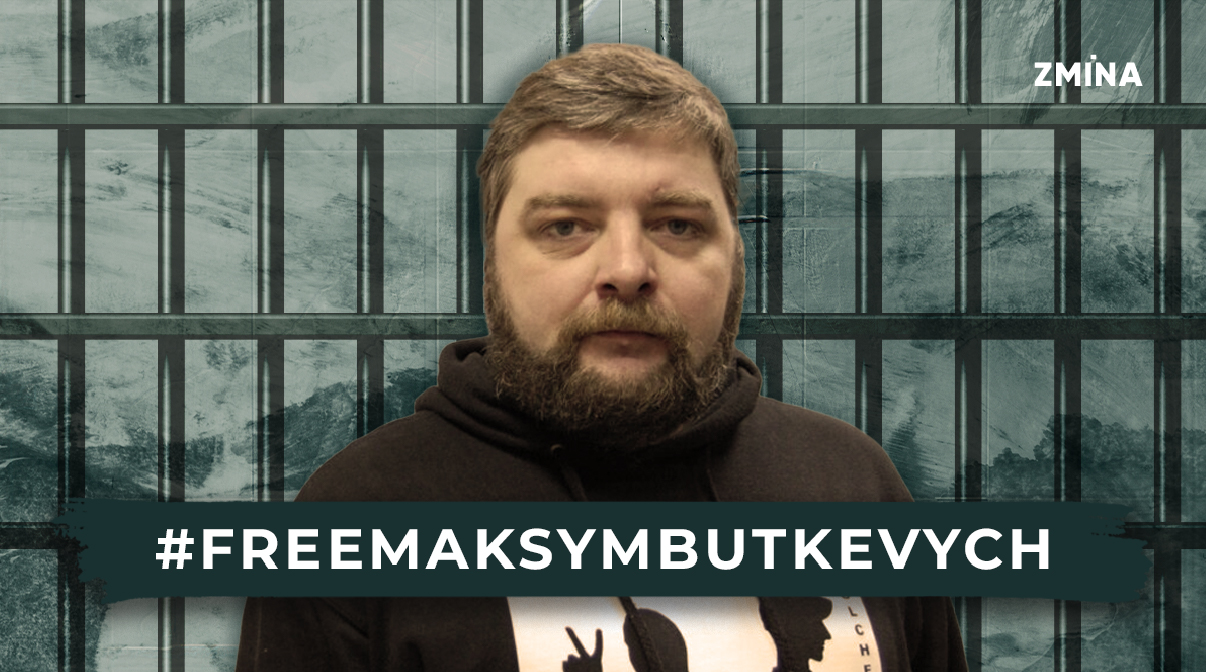 Human rights defender Maksym Butkevych, captured by the Russians, celebrates his third birthday in captivity. Cover photo: ZMINA
Human rights defender Maksym Butkevych, captured by the Russians, celebrates his third birthday in captivity. Cover photo: ZMINAFor more than 16 years, I have been working to protect human rights and civil liberties. In particular, I have tried to assist refugees and internally displaced persons and to counteract xenophobia in its various forms. Therefore, the crimes charged against me are most contrary to my values and the activities that are the leading cause of my life.
In most of the cases I know of, similar to mine, captured Ukrainian soldiers are accused of committing crimes against civilians because of their dislike or hostility toward the people of the Donbas region, even if they are from the Donbas themselves. Something like this is probably implied in my case, although it would be a manifestation of exactly what I have been opposing for so many years. However, there is no exact wording like that in my case.
The motive for the attempted “intentional murder of two or more [civilian] persons in a generally dangerous manner” was stated as follows. I did it “intending to intimidate the civilian population.” “[With] cruel treatment intending to kill in a generally dangerous manner.” In other words, the purpose of the attempted murder was to intentionally kill the victims whom I was trying to intimidate in this way: no more and no less. Still, the forensic psychiatric examination did not reveal any signs of a temporary disorder at the time of the crime in the person who decided to intimidate people by killing them. Well, the indictment contains many more contradictions.
The indictment, a document that can result in a person’s imprisonment for years to come, was drawn up carelessly. In one place, the defendant, me, is called a mobilized person. In another – a contract employee. In different places in the text, I am attributed to different positions. The name of the special unit, “Bars,” pops up in the text, which was not mentioned before or after, and I know nothing about it. The date of the beginning of my service in the Armed Forces is incorrect.
I corrected the absurdities of the first instance right during the court hearing. For example, there was an incorrect date for the beginning of my service: the documents indicated March 20, 2022, while I started my service on March 4, 2022. Given all this, a truly impartial and objective court would have resorted to a thorough review of the collected materials for an independent and comprehensive assessment when dealing with such a carelessly drawn-up accusation. However, this, of course, was not done. In such a court, the case would have collapsed.
Unfortunately, I did not have the opportunity to properly prepare for this hearing, including working with Russian Codes. However, even the short time that I had access to the Code of Criminal Procedure was enough to learn that, according to Article 77(2), “the defendant’s plea of guilty to a crime may be the basis of the charge only if the totality of evidence available in the criminal case confirms his guilt.” It describes precisely what was not in the case.
Except for the testimony of the defendant, i.e., mine, nothing connects me to the incident. I am not mentioned by the victims (especially since both those who were injured and those whose property was damaged mention mortar fire and a “fallen mine,” but not a shot from a grenade launcher). There is no weapons examination. The forensic medical examination did not establish that the explosions of any ammunition caused the injuries but did not reject the grenade launcher, and “other studies of evidence in court that were properly assessed in the verdict” mentioned by the court of second instance in the appeal decision simply do not exist and have not existed. It is enough to read the verdict in question to discover this.
Thus, there is no other evidence of the defendant’s guilt in the case, except for his (my) confession, which, according to the Code of Criminal Procedure of the Russian Federation, could not be the basis of the charge. Yet they were, and the court found me guilty based on this charge.
And these “grateful testimonies” themselves, if they had been carefully evaluated, would not have withstood scrutiny, even the most superficial. The prosecution, for example, stated that I committed the crime by firing a German-made Panzerfaust grenade launcher. To do this, I “opened the cap with grenades,” “assembled a grenade,” loaded the grenade launcher, and fired. Even though the Panzerfaust is similar to the RPG-7 in terms of specifications, the design of these grenade launchers is different, and the person who wrote this has no idea about the design of the Panzerfaust: its charges are not stored in a cap and do not require assembly. It, along with many other seemingly small but significant details, shows that I did not write this testimony, as it would not have occurred to me to write such a thing.
All these inconsistencies, absurdities, and lack of evidence, except for the confessions I signed, can be explained by one thing: these testimonies are not true; they were signed under pressure but not written by me. I did not fire a grenade launcher at a civilian object on June 4, 2022, in the city of Sievierodonetsk. During the hostilities, my unit was not in this city at all.
After being captured on June 21, 2022, my colleagues and I were repeatedly interrogated about the route of our unit’s movement, and these recorded testimonies are stored somewhere, if not destroyed. On June 4, 2022, I was actually in the city of Kyiv, which is confirmed by the evidence previously requested by my defense counsel.
Unfortunately, this is not surprising: out of the dozens of convicted Ukrainian prisoners of war with whom I have had the opportunity to communicate during this time, almost none of them were at the time in the place where they allegedly committed the acts they “confessed” to. Therefore, my case is not unique. Still, I can declare with full responsibility to this court, at least for myself, that neither in June 2022 nor at any other time did I commit any actions directed against the civilian population, nor did I commit any other violations of international humanitarian law, nor did I receive, give or, accordingly, execute orders aimed at committing such actions. I would also like to take this opportunity to state that I am not suicidal, self-harming, or on the run, am not confrontational, and do not resort to resolving conflicts through violence.
I sincerely sympathize with the victims for what they have gone through, for the harm they have suffered, and for the fact that their misfortune has been used to convict an innocent man. I have no illusions about the possibility of restoring justice within the Russian judicial system. However, I can no longer give testimony that is not true. It is wrong and ultimately sinful – wrong from every point of view.
The judge (somewhat surprised): So you support the cassation appeal?
Maksym Butkevych: Yes, I fully support it, including the statement that it was self-incrimination.
The judge: Why did you do it? Why did you incriminate yourself?
Maksym Butkevych: Because I was promised that if I signed the plea, I would be immediately exchanged for Russian servicemen convicted in Ukraine (as well as other convicted prisoners of war). If I do not agree to admit my guilt, I will be convicted anyway, but there will be no exchange, and I will be subjected to psychological and physical pressure. Some examples of such pressure were demonstrated.
The judge: The court is recessed for a meeting.
Last year in August, in Moscow, the First Court of Appeal of General Jurisdiction considered an appeal against the “sentence” to Butkevych, who was sent to a maximum security colony in the occupied Luhansk region by Russian occupying forces for 13 years. The Court of Appeal upheld the “sentence” but decided to count the actual detention time, i.e., August 19, 2022, as part of the sentence.
The Russians accused the human rights defender of injuring two women in Sievierodonetsk by firing a grenade launcher into the entrance of a residential building.
Maksym Butkevych has been involved in human rights activities for over twenty years. He was a co-founder and coordinator of the No Borders project and a co-founder and board member of the ZMINA.Human Rights Center. For many years, he has been one of the organizers and moderators of screenings and events at the Docudays UA International Human Rights Documentary Film Festival. He was a member of the Public Council at the Ministry of Internal Affairs of Ukraine.
Butkevych has delivered lectures on human rights and hate speech to journalists, activists, Ministry of Internal Affairs employees, and government agencies in Ukraine and other countries upon invitation. He worked at the Office of the United Nations High Commissioner for Refugees in Ukraine.
The human rights activist joined the Armed Forces of Ukraine in March 2022 and was taken prisoner by Russia in June 2022.
His father, Oleksandr Butkevych, shortly said that Russia was going to organize a sham trial for his son.

